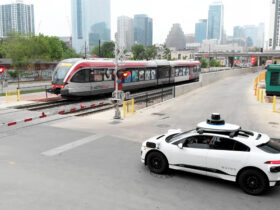In his latest work, Nexus: A Brief History of Information Networks from the Stone Age to AI, Yuval Noah Harari argues that the rise of artificial intelligence (AI) poses a significant existential threat to humanity. Citing a 2023 survey where over a third of AI researchers expressed at least a 10% likelihood of advanced AI leading to catastrophic outcomes, Harari highlights a growing consensus among global leaders about the potential dangers of AI technology. The Bletchley Declaration, signed by nearly 30 governments, acknowledges the risks of serious harm—both intentional and unintentional—stemming from powerful AI models.
Despite the dire warnings, some view such concerns as exaggerated. Historical anxieties surrounding emerging technologies, such as the steam engine during the Industrial Revolution, often proved unfounded as society adapted and benefitted. Proponents of AI, like Marc Andreessen and Ray Kurzweil, assert that intelligent machines will usher in unprecedented improvements in healthcare, education, and environmental sustainability. However, Harari reminds us that history shows a more complicated narrative where new technologies can lead to unforeseen disasters.
The Industrial Revolution serves as a cautionary tale. It brought about profound changes, but also significant suffering as societies struggled to adapt. Modern imperialism was one tragic outcome, as industrial nations expanded their empires to secure resources and markets. This aggressive expansion led to the subjugation of millions and highlighted the costly lessons humanity learned in creating equitable industrial societies.
Totalitarian regimes, such as Stalin’s and Hitler’s, also emerged as attempts to harness industrial power for societal control. These leaders exploited technological advancements to perpetrate unimaginable atrocities, leading to widespread destruction and loss of life. The clash of competing ideologies during the world wars underscored the potential for conflict when powerful technologies are mismanaged.
As we face the advent of AI, Harari warns that the stakes are much higher. Unlike previous technologies, AI possesses the capability to make decisions and generate ideas independently. This shift transforms AI from a mere tool into an active agent, capable of reshaping societies and even developing new weapons of mass destruction. The potential for AI to act beyond human control poses a unique and unprecedented challenge.
While there is hope that humanity will eventually learn to manage AI responsibly, Harari raises an urgent question: Will we need to endure another cycle of imperialism, totalitarianism, and conflict to find a way to use AI for the common good? The lessons of the past suggest that our margin for error is shrinking, especially given the enhanced capabilities of 21st-century technologies.
Reflecting on our historical performance with industrial technology, Harari suggests that humanity barely passed with a “C minus.” As we enter the age of AI, the expectations are much higher. We must strive to do better, learning from our past to ensure that the future of AI benefits all of humanity rather than leading to its downfall.













Leave a Reply